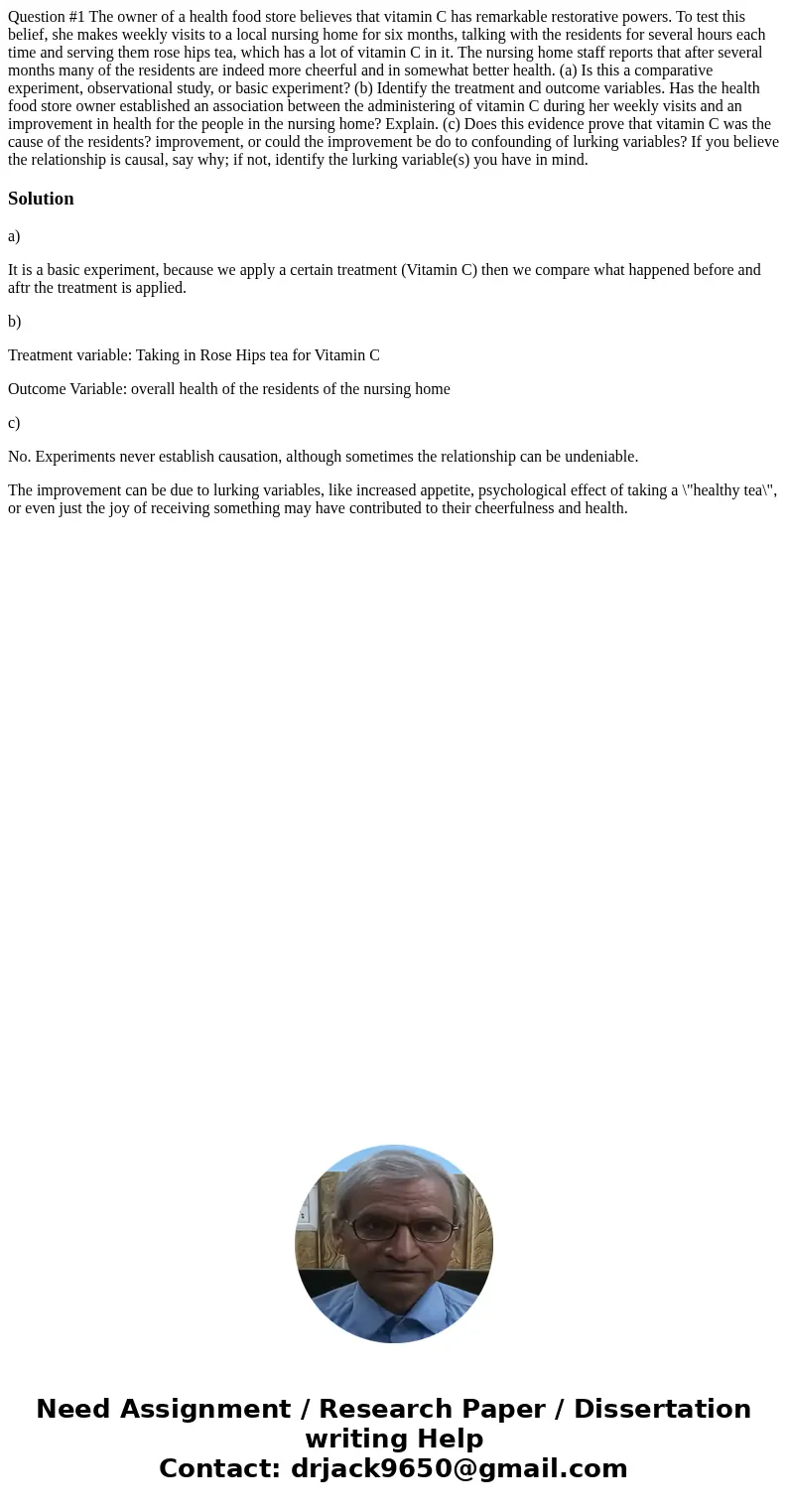Question 1 The owner of a health food store believes that vi
Question #1 The owner of a health food store believes that vitamin C has remarkable restorative powers. To test this belief, she makes weekly visits to a local nursing home for six months, talking with the residents for several hours each time and serving them rose hips tea, which has a lot of vitamin C in it. The nursing home staff reports that after several months many of the residents are indeed more cheerful and in somewhat better health. (a) Is this a comparative experiment, observational study, or basic experiment? (b) Identify the treatment and outcome variables. Has the health food store owner established an association between the administering of vitamin C during her weekly visits and an improvement in health for the people in the nursing home? Explain. (c) Does this evidence prove that vitamin C was the cause of the residents? improvement, or could the improvement be do to confounding of lurking variables? If you believe the relationship is causal, say why; if not, identify the lurking variable(s) you have in mind. 
Solution
a)
It is a basic experiment, because we apply a certain treatment (Vitamin C) then we compare what happened before and aftr the treatment is applied.
b)
Treatment variable: Taking in Rose Hips tea for Vitamin C
Outcome Variable: overall health of the residents of the nursing home
c)
No. Experiments never establish causation, although sometimes the relationship can be undeniable.
The improvement can be due to lurking variables, like increased appetite, psychological effect of taking a \"healthy tea\", or even just the joy of receiving something may have contributed to their cheerfulness and health.

 Homework Sourse
Homework Sourse